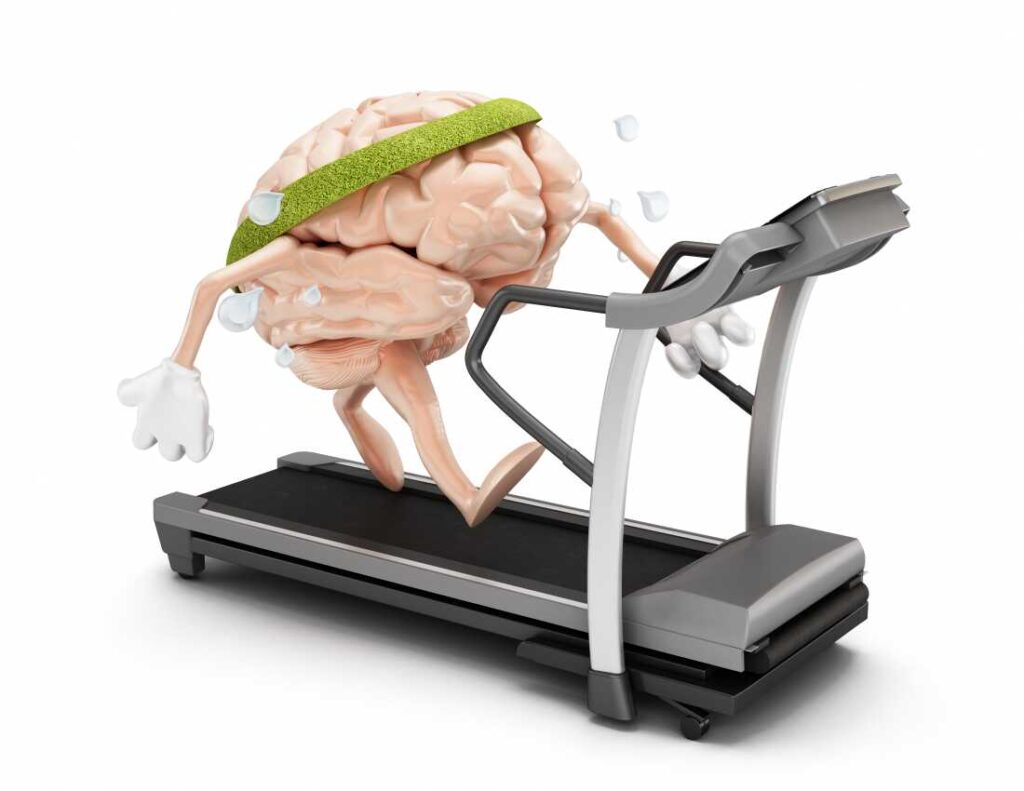WASHINGTON — For years, scientists have debated whether brain-training games and apps can actually make people smarter or just better at playing the games themselves. Now, a new study offers some of the first biological evidence that these mental workouts can truly change the brain — at least in older adults.
Researchers at McGill University in Montreal have found that just 30 minutes a day of intensive cognitive exercises for 10 weeks boosted levels of acetylcholine — a vital brain chemical involved in attention and memory — by about 2.3% in people aged 65 and older.
That might not sound dramatic, but according to lead researcher Dr. Étienne de Villers-Sidani, the increase is meaningful. “It’s significant, considering that acetylcholine levels usually decrease by around 2.5% every decade with normal aging,” he said. “So in effect, this training seems to turn back the clock by roughly ten years — at least in this specific brain region.”
The results, published this week and funded by the National Institutes of Health (NIH), are being described by experts as “compelling” evidence that mental workouts can yield tangible, biological benefits.
🧩 What the Study Found
The McGill team recruited 92 healthy adults aged 65 and above and divided them into two groups.
One group played casual computer games like Solitaire and Candy Crush for 30 minutes daily.
The other group engaged in more demanding cognitive exercises using BrainHQ, a scientifically tested brain-training program designed to sharpen memory, focus, and processing speed.
After ten weeks, participants underwent a specialized PET scan to measure acetylcholine activity in the anterior cingulate cortex, a region linked to decision-making and error detection.
The results were clear:
No change in acetylcholine levels was observed among the casual gamers.
But in those who completed BrainHQ’s intensive tasks, acetylcholine levels rose significantly, not only in the anterior cingulate cortex but also in the hippocampus, a critical area for memory formation.
💬 Expert Reactions
Dr. Michael Hasselmo, director of the Center for Systems Neuroscience at Boston University, who was not involved in the research, called the findings “persuasive.”
“It was compelling enough that I thought, ‘Maybe I need to be doing this myself,’” Hasselmo said with a laugh.
He added that even modest changes in acetylcholine levels can have a “profound and notable effect” on cognitive performance. “If you block this chemical, a person can’t think clearly — they go into a delirious state,” he explained. “So even a small boost can enhance memory, attention, and learning.”
🧠 Why Acetylcholine Matters
Acetylcholine serves as a chemical messenger in the brain, helping neurons communicate efficiently. It’s also crucial for focus, problem-solving, and retaining new information.
Levels of this neurotransmitter typically begin to decline around middle age, and the drop becomes much steeper in people with Alzheimer’s disease. In fact, the first generation of Alzheimer’s drugs — such as donepezil (Aricept) — worked by increasing acetylcholine levels to improve symptoms temporarily.
This new research suggests that cognitive training may achieve similar effects naturally, without medication.
🕹️ Brain Games: Do They Really Work?
Programs like Lumosity, Elevate, Peak, and BrainHQ have surged in popularity over the past decade, promising sharper minds through daily brain exercises. But until now, evidence of their impact on the brain’s biology was lacking.
“They had shown improvements on certain cognitive tests,” said de Villers-Sidani. “But the real question was — are these games actually changing the brain? And now, it seems they might be.”
🔍 The Takeaway
The findings don’t mean that everyone should rush to download the next brain game app, but they do hint at a promising way to maintain or even restore cognitive health as we age.
“Just as we talk about not skipping leg day at the gym,” de Villers-Sidani said, smiling, “maybe it’s time we start saying: Never skip brain day.”

